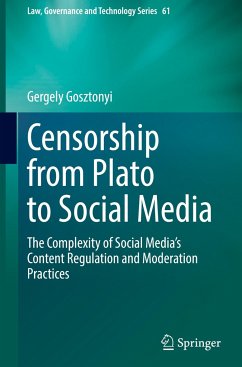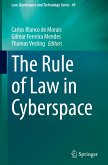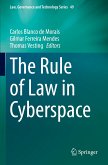In many countries, censorship, blocking of internet access and internet content for political purposes are still part of everyday life. Will filtering, blocking, and hacking replace scissors and black ink? This book argues that only a broader understanding of censorship can effectively protect freedom of expression.
For centuries, church and state controlled the content available to the public through political, moral and religious censorship. As technology evolved, the legal and political tools were refined, but the classic censorship system continued until the end of the 20th century. However, the myth of total freedom of communication and a law-free space that had been expected with the advent of the internet was soon challenged. The new rulers of the digital world, tech companies, emerged and gained enormous power over free speech and content management. All this happened alongside cautious regulation attempts on the part of various states, either by granting platforms near-totalimmunity (US) or by setting up new rules that were not fully developed (EU). China has established the Great Firewall and the Golden Shield as a third way.
In the book, particular attention is paid to developments since the 2010s, when Internet-related problems began to multiply. The state's solutions have mostly pointed in one direction: towards greater control of platforms and the content they host. Similarities can be found in the US debates, the Chinese and Russian positions on internet sovereignty, and the new European digital regulations (DSA-DMA). The book addresses them all.
This book will be of interest to anyone who wants to understand the complexities of social media's content regulation and moderation practices. It makes a valuable contribution to the field of freedom of expression and the internet, showing that, with different kinds of censorship, this essentially free form of communication has come - almost by default - under legal regulation and theoriginal freedom may have been lost in too many countries in recent years.
For centuries, church and state controlled the content available to the public through political, moral and religious censorship. As technology evolved, the legal and political tools were refined, but the classic censorship system continued until the end of the 20th century. However, the myth of total freedom of communication and a law-free space that had been expected with the advent of the internet was soon challenged. The new rulers of the digital world, tech companies, emerged and gained enormous power over free speech and content management. All this happened alongside cautious regulation attempts on the part of various states, either by granting platforms near-totalimmunity (US) or by setting up new rules that were not fully developed (EU). China has established the Great Firewall and the Golden Shield as a third way.
In the book, particular attention is paid to developments since the 2010s, when Internet-related problems began to multiply. The state's solutions have mostly pointed in one direction: towards greater control of platforms and the content they host. Similarities can be found in the US debates, the Chinese and Russian positions on internet sovereignty, and the new European digital regulations (DSA-DMA). The book addresses them all.
This book will be of interest to anyone who wants to understand the complexities of social media's content regulation and moderation practices. It makes a valuable contribution to the field of freedom of expression and the internet, showing that, with different kinds of censorship, this essentially free form of communication has come - almost by default - under legal regulation and theoriginal freedom may have been lost in too many countries in recent years.








